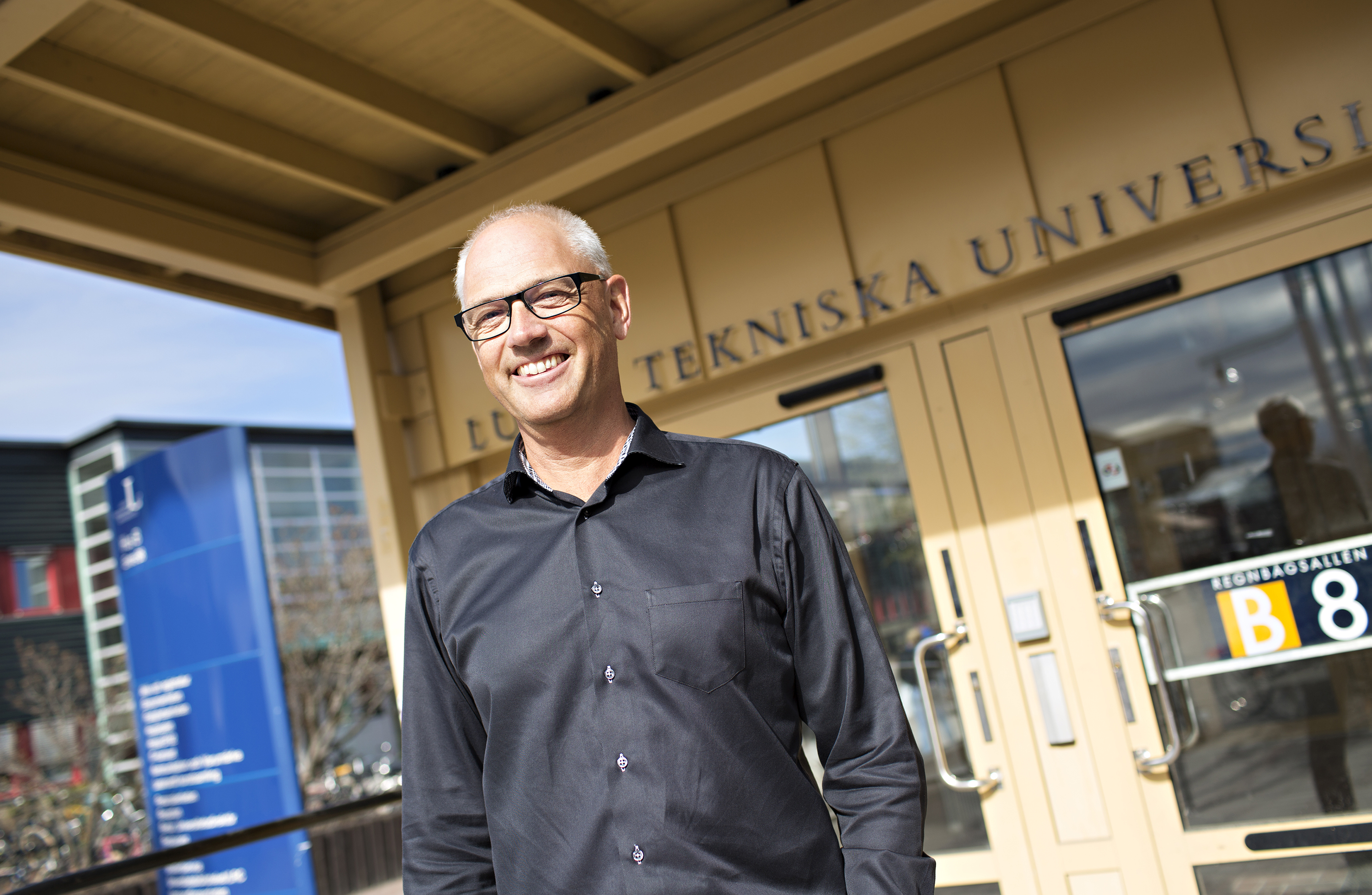 Lars Stehn, Professor at Luleå University of Technology
Lars Stehn, Professor at Luleå University of Technology
Press briefing 14/04/21. While most industries are constantly improving their productivity and are often able to reduce their costs and prices over time, the building industry seems to be standing still. Several studies from different countries clearly indicate that the traditional building industry has had weak productivity growth for a long time. At the same time, there is a subsector that differs markedly, the industrial wood building industry. Luleå University of Technology (LTU) is now launching a project to find out about the industry’s performance.
Industrial building is described as a modern industry with climate-efficient processes, energy-efficient production methods and industrial flows with a high level of prefabrication. This gives a controlled supply chain that meets the demand for attractive, urban buildings through efficient assembly on the building site.
“The main issue for this project is to find out what the productivity development for industrial building in Sweden looks like," says Professor Lars Stehn, researcher in industrial and sustainable building at LTU, who is leading the project and explains: “I have been following industrial building for a long time, so I am therefore also in contact with the leading companies. Understanding the strengths and weaknesses of the development of productivity creates the conditions for even more powerful development - and in the short term.”
In addition to the efficient process, the companies that build with timber get a number of important sustainability benefits. Timber is a lightweight, strong and renewable material that binds carbon dioxide and has properties that are considered to contribute to healthy residential and business environments.
“The potential for industrial building in timber is larger than the Swedish market,” says Jerker Lessing, Head of Research and Development at BoKlok and adjunct professor of industrial building at Stanford University. He emphasises that Swedish companies are international leaders in this area, but that there are no established measurements, which are needed to be able to follow the productivity benefits and further accelerate development. For Swedish companies, there is great potential in expanding their market presence to more countries and markets, thus obtaining larger volumes that can support investments in both technological development and manufacturing capacity.
The aim of the participating companies is also to be able to follow up and measure their own development.
“Industrial building in timber is growing rapidly now,” says Susanne Rudenstam, head of the Swedish Wood Building Council (Sveriges Träbyggnadskansli). By 2019, wood building had reached a market share of 20 per cent for homes in apartment buildings, and the direction is pointing steadily upwards. The major driving force is the climate question, but the strength of the industry lies in the renewal of the building industry that industrial building entails. As well as being a question of sustainability, the efficient use of resources is also the only way towards cost-effectiveness.
The project is led by Professor Lars Stehn, LTU, who is responsible for the scientific work. Jerker Lessing, R&D Manager BoKlok, is deputy project manager and leads the work of endorsement in the industry. The following companies participate in the project: Anebyhus, BoKlok, Derome, Götenehus, Lindbäcks Bygg, Martinsons, Moelven Töreboda, Moelven Byggmodul, OBOS, Setra, Södra Building Systems, Sizes och Vida Building.
Luleå University of Technology has a total annual turnover of SEK 1.7 billion and has 1,650 employees and 15,500 students. In the industrial and sustainable building research group, research and education are conducted in the building process – from early planning and design through the building stage to property management.
Swedish Wood Building Council works to increase building in timber and the growth of the industrial wood building sector in Sweden. The council's operations take place within the framework of the collaboration between Swedish Wood (part of Swedish Forest Industries) and the Swedish Federation of Wood and Furniture Industry (TMF).
For more information, please contact:
Susanne Rudenstam, Swedish Wood Building Council
+46 (0)70-214 37 72, susanne.rudenstam@trabyggnadskansliet.se
